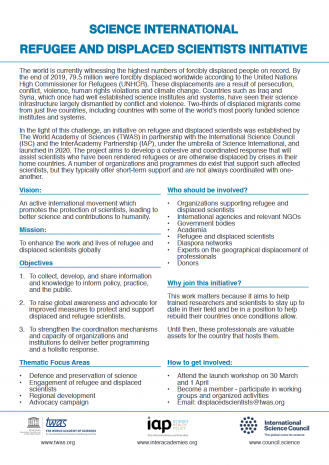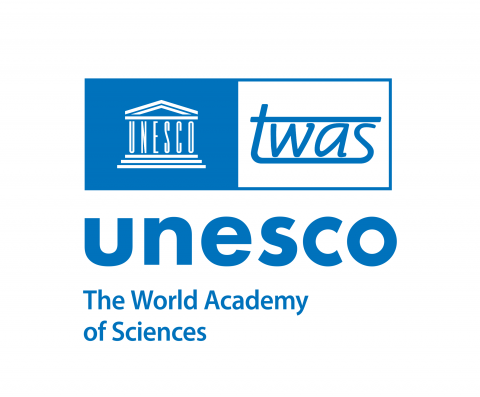The world is currently witnessing the highest numbers of forcibly displaced people on record. By the end of 2019, 79.5 million were forcibly displaced worldwide according to the United Nations High Commissioner for Refugees (UNHCR). These displacements are a result of persecution, conflict, violence, human rights violations and climate change. Countries such as Iraq and Syria, which once had well established science institutes and systems, have seen their science infrastructure largely dismantled by conflict and violence. Two-thirds of displaced migrants come from just five countries, including countries with some of the world’s most poorly funded science institutes and systems.
In the light of this challenge, an initiative on refugee and displaced scientists was established by The World Academy of Sciences (TWAS) in partnership with the International Science Council (ISC) and the InterAcademy Partnership (IAP), under the umbrella of Science International, and launched in 2020. The project aims to develop a cohesive and coordinated response that will assist scientists who have been rendered refugees or are otherwise displaced by crises in their home countries. A number of organizations and programmes do exist that support such affected scientists, but they typically offer short-term support and are not always coordinated with one-another.



